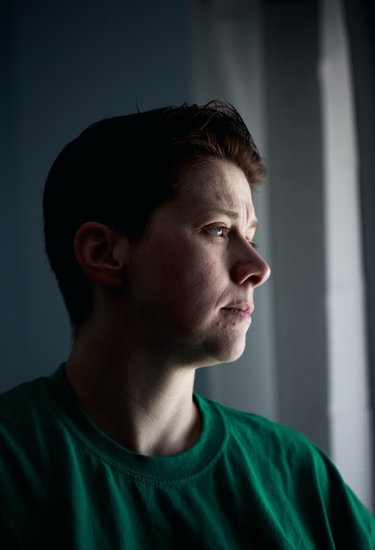New California bill gives sexual abuse victims hope for justice
New California Assembly Bill 218 opens up a three-year window of opportunity for victims of sexual abuse who were previously barred from bringing their case to civil court due to the statute of limitations. Hundreds of victims have already begun to file their cases and expose their abusers as well as the institutions that help to cover up the abuse.
.jpg)
With the media frenzy that surrounds the ongoing coverage of the Harvey Weinstein trial, and others in the wake of the #MeToo movement, the prevalence of sexual assault and abuse no longer lies tacitly dormant beneath the surface of the American Conscience. It has been pulled into the sphere of public dialogue and launched the production of film series such as “Surviving R. Kelly” and “Leaving Neverland,” and even Oscar-winning movies like “Spotlight.” Along with the public dialogue and debate, lawmakers have gone to work changing some pre-existing regulations that make it difficult for victims of sexual assault and abuse to bring their alleged perpetrators to justice. One of those key statutes that California lawmakers sought to address was the statute of limitations for a victim of sexual assault and/or abuse.
Under the previous laws in California, victims of sexual assault were barred by the statute of limitations in one of two ways. First, after 8 years from the date the victim attains the “age of majority,” or in simpler language: turns 18, the victim is no longer able to pursue recovery for damages suffered by the abuse. Under this statute of limitations, those over 26 are banned from bringing their civil case forward. Unless that is, the victim discovers the psychological injury or effect after they turned 18, in which case the victim has 3 years from the “age of discovery” to pursue a civil case against the perpetrator.
"We shouldn't be telling victims their time is up"

As the author of Assembly Bill 218 (AB-218), Assemblywoman Lorena Gonzalez (D – San Diego), led the charge in hopes of giving every victim a chance to report their abuse and bring the perpetrator to justice. Stating that “the idea that someone who is assaulted as a child can actually run out of time to report that abuse is outrageous.” What worries Gonzalez most are those that are unable or not ready to come forward before the statute of limitations runs out. “More and more, we’re hearing about people who were victims years ago but were not ready to come forward to tell their story until now. We shouldn’t be telling victims their time is up when in reality we need them to come forward to protect the community from future abuse.” [1]
While many showed support for the bill, some had concerns that the added time may not be in the best interest of the victims, rather it is only in the best interest of the plaintiff lawyers. The California Civil Liberties Advocacy group stated that “extending the statute of limitations in civil suits is more in the interests of the plaintiffs’ lawyer industry than that of the abuse survivors, in which the negative effects will be felt in the decades to come.” Additionally, the group voiced their concern that the reliability and availability of evidence greatly diminishes over time to the extent that it can negatively impact civil defendants. [2]
With both parties' concerns in mind, lawmakers and lobbyists continued to work on AB-218 which would, if passed, extend the statute of limitations as well as allow for damages to be trebled if a company or institution is discovered to have covered up an incident or incidents of sexual abuse. The proposed bill would extend the “age of majority” limitation from 8 years (ending at age 26) to 22 years, allowing victims to bring charges against their perpetrators up until their 40th birthday. Additionally, the previous 3-year “age of discovery” limitation would be extended to give victims who become aware of their damages after their 40th birthday up to 5 years to file a civil lawsuit.

With majority support, the bill was passed on September 14, 2019, and came into effect on January 1, 2020. With its enactment, a three-year “lookback window” of opportunity was granted for claims that had previously expired under the current statute of limitations in California. Under this provision, beginning January 1, 2020, survivors have three years to file a civil lawsuit, granting those who were silenced by the statute of limitations the opportunity to bring their accusations forward.
Victims come forward to face their abusers
David Green is among the many that have come forward since the lookback window was initiated. He claimed that he was sexually abused by an assistant Boy Scout leader for nearly three years but was unable to bring the case to court because of the statute of limitations. Green, the 62-year-old from Fresno, California is now bringing his case to court and demanding restitution for trauma caused by the abuse. He also made a public statement encouraging anyone else who has remained silent to come forward. “I think that every child who’s a grownup now and was molested through the Boy Scouts should step up because it wasn’t your fault. You were the victim, and this is something you really need to do. It will help with the closure and get justice for what happened to you.” [3]
Along with Green, Zalkin Law Firm announced that they have at least 165 new priest abuse lawsuits against the California Catholic Diocese that will be filed in the coming weeks. Countless more lawsuits are anticipated to be filed against the Roman Catholic Church and Boy Scouts of America, as well as school districts,hospitals, and youth sports groups. While there may be more difficulty in presenting available and reliable evidence, those affected will get their day in court and allowed to face their perpetrators as well as those who helped conceal the abuse.
We care deeply for those who have had to deal with the trauma and suffering inflicted by sexual abuse and want to fight on their behalf. While we understand that many of those wounds cannot be healed, we can still make sure you have the legal representation you deserve and guarantee you have a voice to call out the injustice. If you are one of those that are now eligible for a civil case in California, due to the extended statute of limitations or the 3-year lookback window, we want to help you. Fill out our contact form and we will help you get the legal representation you deserve.




